Publication type: Policy Briefs
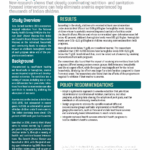
Amplifying India’s Efforts Against Anemia
This policy brief presents the results of a study of the impact of the Anemia Mukt Bharat (Anemia-Free India) and Swachh Bharat Mission (Clean India Mission) on anemia in children. Researchers mapped indicators from the National Family Health Survey (NFHS) at the individual, household, and...
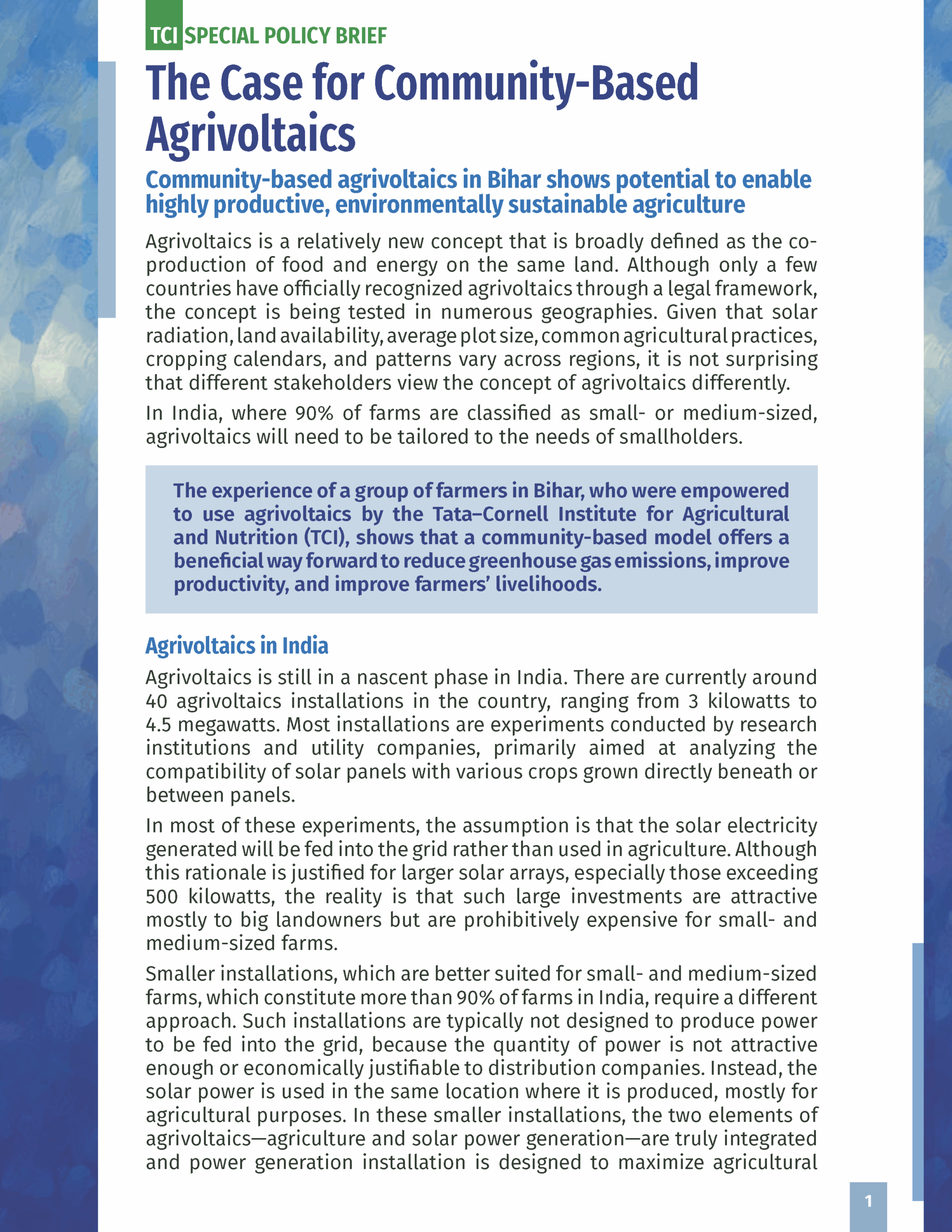
The Case for Community-Based Agrivoltaics
This special policy brief presents the benefits of community-based agrivoltaics for smallholder farmers in India, based on a pilot agrivoltaics site that TCI built with a group of farmers in Bihar. The brief provides an assessment of how agrivoltaics can help reduce greenhouse gas emissions,...
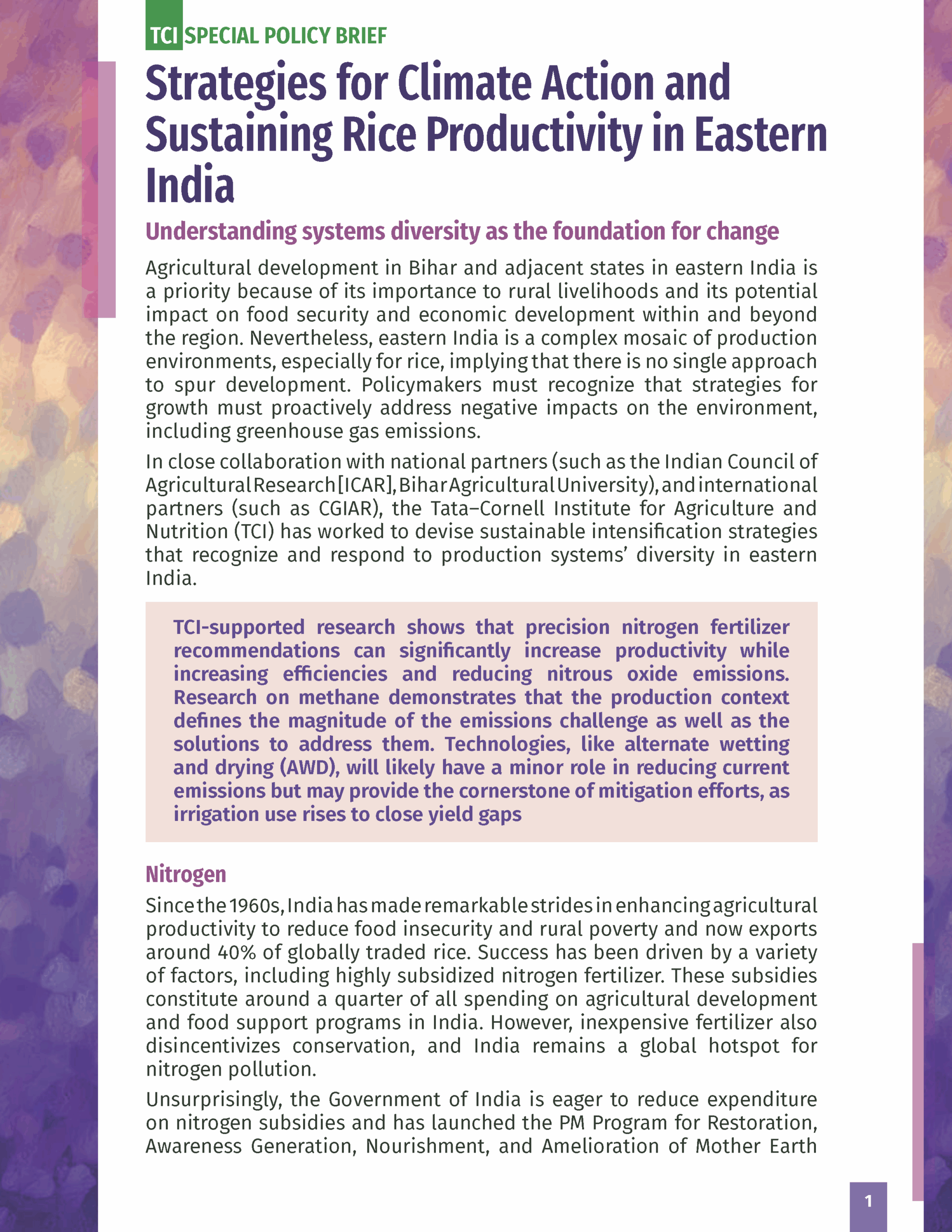
Strategies for Climate Action and Sustaining Rice Productivity in Eastern India
This special policy brief presents the results of TCI-supported studies aimed at enhancing the productivity of rice farms and reducing greenhouse gas emissions from rice production in Bihar. It examines strategies for increasing the efficiency of nitrogen fertilizer usage and demonstrates that the production context...
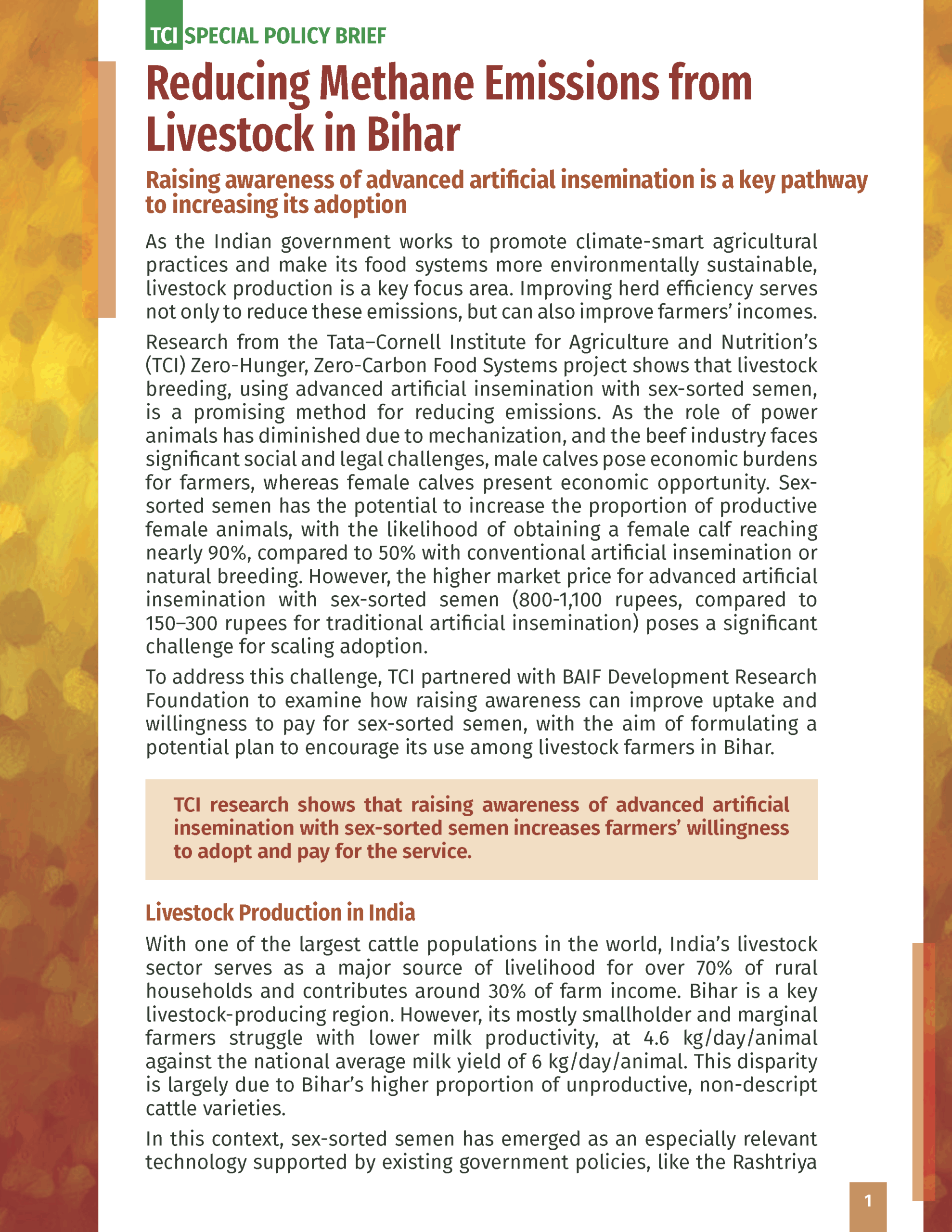
Reducing Methane Emissions from Livestock in Bihar
This special policy brief presents preliminary results from a TCI study on the impact of awareness campaigns on farmer adoption of advanced artificial insemination with sex-sorted semen for livestock breeding, a potential pathway for increasing productivity and reducing methane emissions from livestock production in Bihar....

Information Is Key to Ending Open Defecation
This policy brief presents the results of a study of the impact of toilet subsidies and behavior change communications on the practice of open defecation in rural India. TCI researchers conducted a cluster randomized trial of villages in Uttar Pradesh, providing one group of villages...
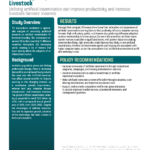
Increasing Adoption of Artificial Insemination for Livestock
This policy brief presents the results of a systematic review of existing research on the determinants of farmers’ use of artificial insemination for livestock breeding. TCI researchers examined 18 studies spanning 10 countries throughout the developing world, creating a list of factors that most heavily...

Promoting Agricultural Diversification and Climate Resiliency in India
This special policy brief estimates the potential reduction in methane gas emissions from the diversification of agriculture in Chhattisgarh, India. The analysis provides policymakers with information regarding pathways for combatting climate change by reducing agricultural emissions, making Chhattisgarh’s agricultural system more resilient to the effects...
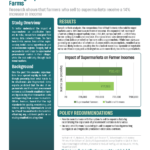
Making Supermarkets Profitable for India’s Small Farms
This policy brief presents the results of a study examining the impact of supermarkets on smallholder farmers in India. Using field survey data collected from 795 farm households across four states representing India’s varied agroclimatic and socioeconomic regions, researchers found that farmers who sold to...
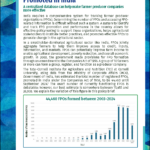
Identifying the Number of FPOs Promoted in India
This special policy brief provides an estimate of the number of active farmer producer organizations (FPOs) promoted in India from 2003 to 2024 and makes the case for a centralized system for tracking FPOs. A system to identify and track FPO promotion and performance in...
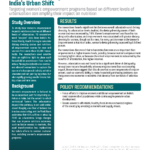
Empowerment Is Key for Women’s Nutrition Amid India’s Urban Shift
This policy brief presents the findings of a TCI study examining the effect of women’s nutritional empowerment on dietary diversity within households situated in areas along a continuum from rural to urban. Using data from the National Family Health Survey and satellite-based data on nighttime...

